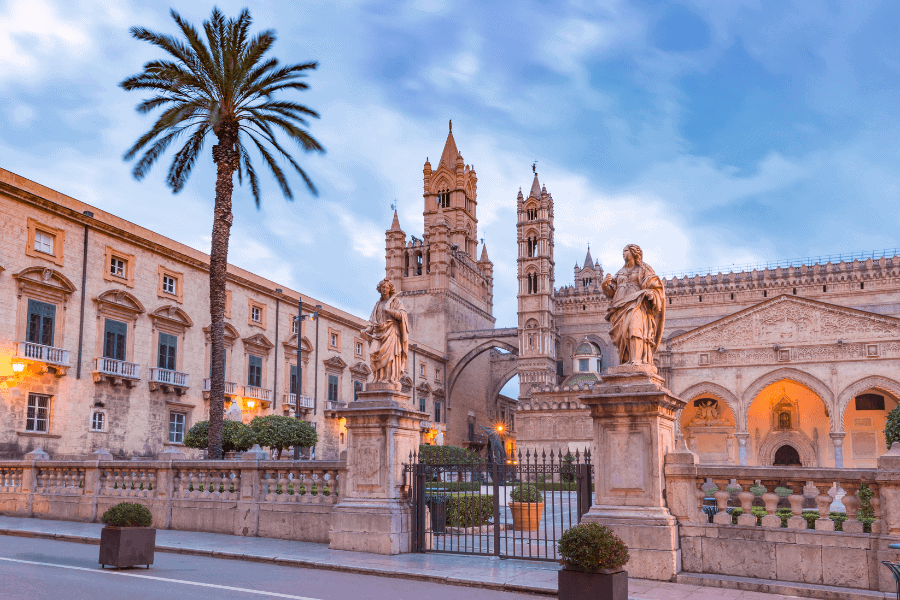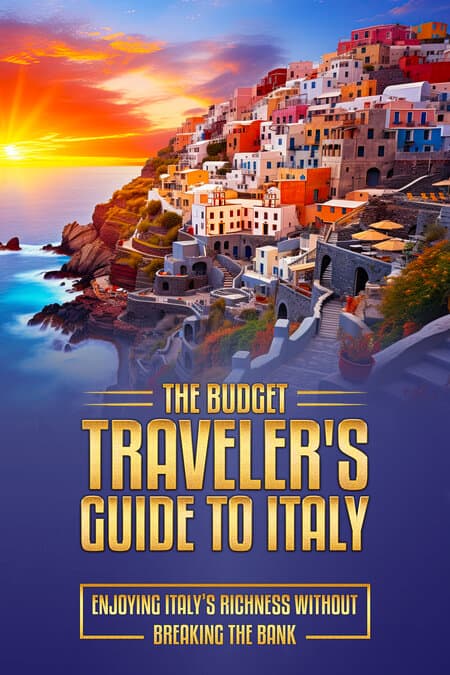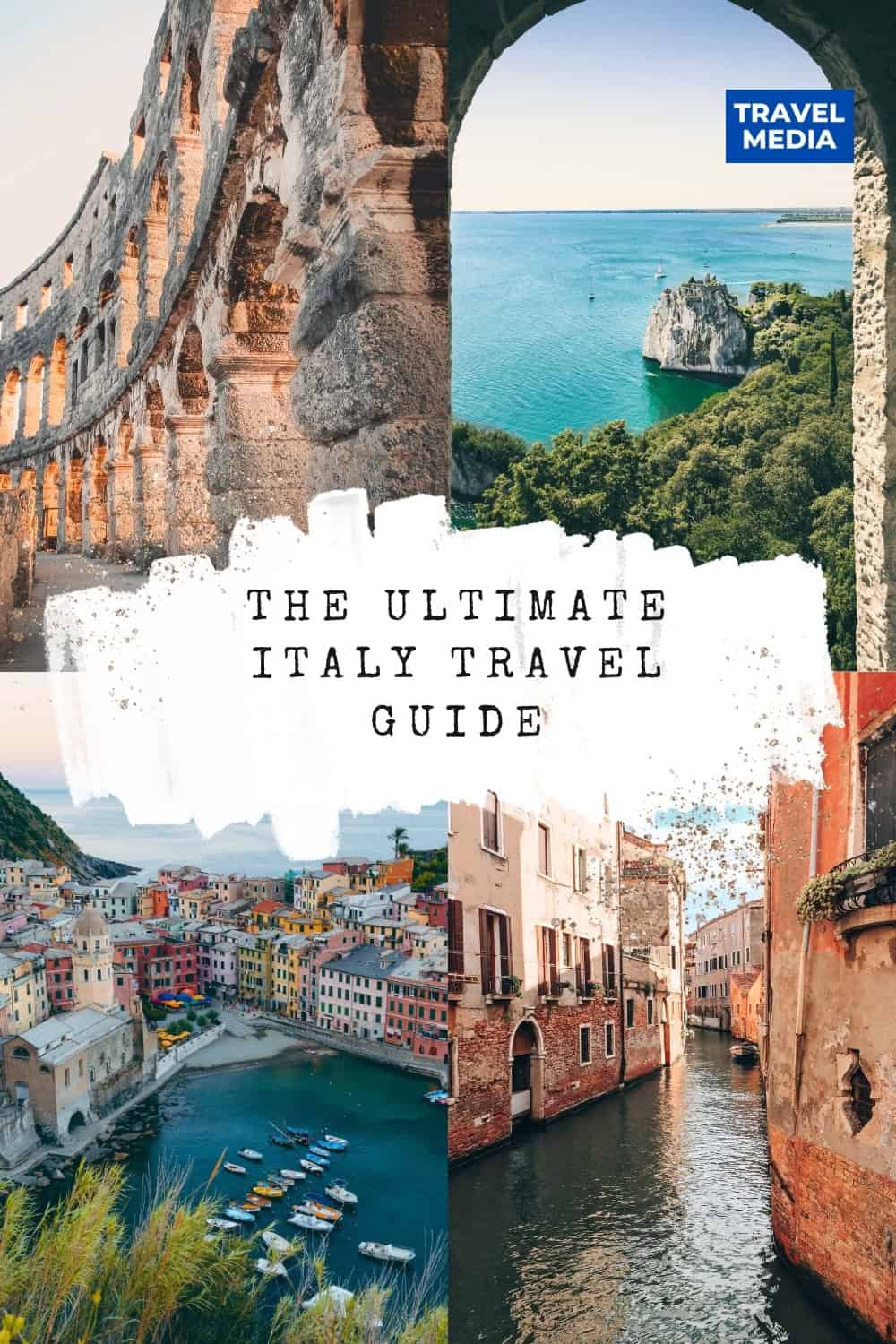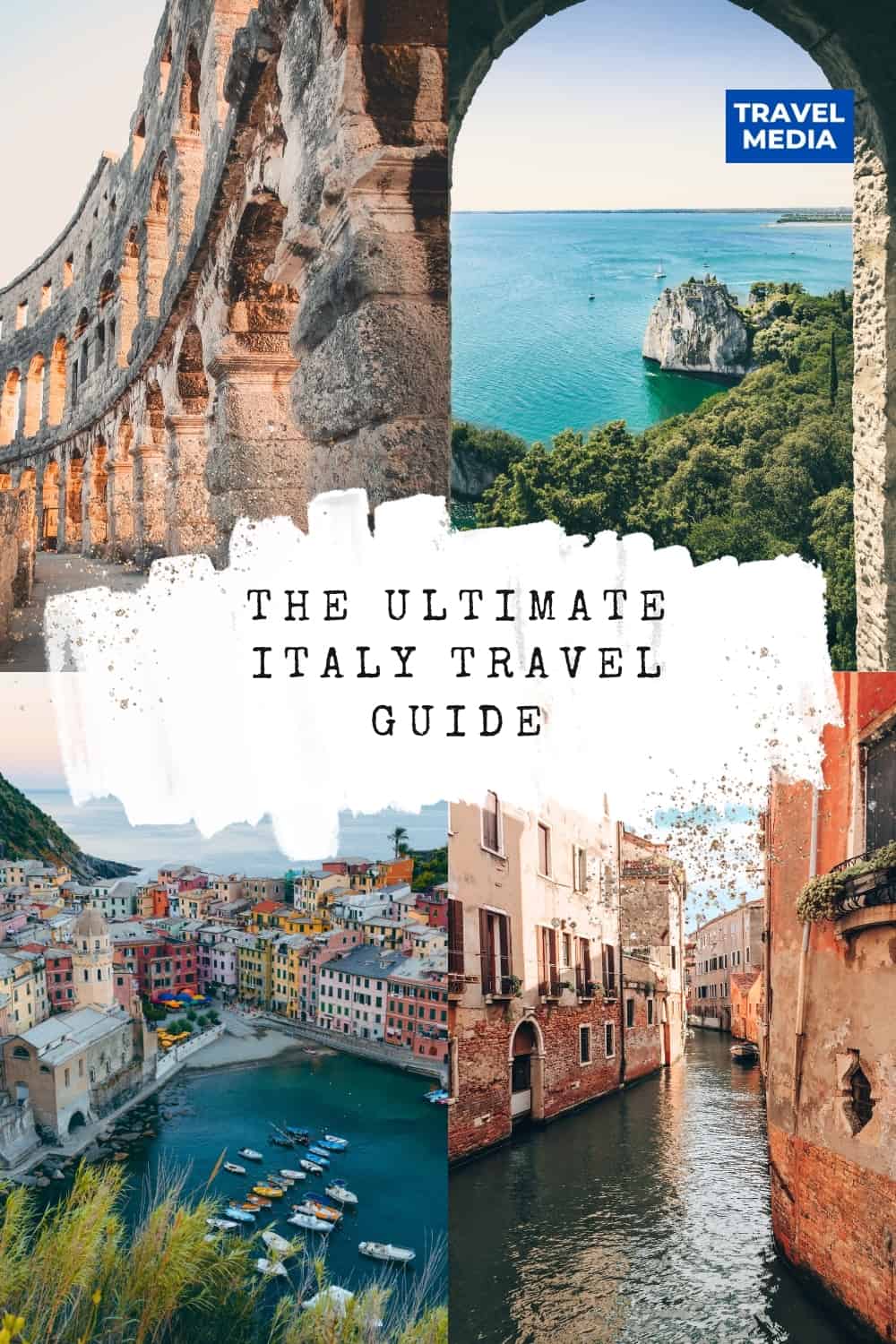Italy Travel Guide
Written by Joeri Van Overloop
Why Visit Italy?
Italy is a popular vacation destination for a variety of reasons. From its rich history and cultural heritage to its beautiful landscapes and delicious cuisine, there is something for everyone in Italy. Here are just a few reasons why you should consider choosing Italy as your next travel destination.
- The art and architecture: Italy is home to some of the most famous works of art and architecture in the world. The country is filled with stunning Renaissance palaces, churches, and museums, as well as ancient ruins and castles. In cities like Rome, Florence, and Venice, you can visit iconic landmarks like the Colosseum, the Pantheon, and the Basilica of San Giovanni in Laterano.
- The food: Italian cuisine is known for its delicious pasta dishes, pizza, and gelato, but there is so much more to try. From regional specialties like Tuscan steak and Neapolitan seafood to local wines and olive oils, there is no shortage of delicious food to enjoy in Italy.
- The natural beauty: Italy is home to a diverse range of landscapes, from the rolling hills of Tuscany to the dramatic coastlines of the Amalfi Coast. The country is also home to several national parks and natural reserves, where you can explore beautiful forests, mountains, and lakes.
- The beaches: Italy has some of the most beautiful beaches in Europe, with crystal clear waters and soft, sandy shores. The country has a long coastline, with many popular beach destinations like the Mediterranean island of Sardinia, the Adriatic Sea, and the Tyrrhenian Sea.
- The culture: Italy has a rich and vibrant culture that is evident in its art, music, literature, and film. The country has a long history, with a wealth of cultural traditions and customs that are still celebrated today. From the art and architecture of the Renaissance to the modern fashion and design industry, there is always something new to discover in Italy.
- The weather: Italy has a Mediterranean climate, with warm, sunny summers and mild winters. This makes it a great destination for a vacation any time of the year. In the summer, you can enjoy the beautiful beaches and outdoor activities, while in the winter, you can explore the charming cities and enjoy the warm and cozy atmosphere.
- The people: Italian people are known for their warmth and hospitality, and you will find them to be very welcoming and friendly. Whether you are staying in a hotel, renting an apartment, or staying with a local host, you will be sure to experience the famous Italian hospitality.
In conclusion, there are many reasons why Italy is a great vacation destination. From its rich cultural heritage and beautiful landscapes to its delicious cuisine and friendly people, there is something for everyone in this beautiful country. Whether you are interested in art and architecture, food, nature, or beach vacations, Italy has it all.
Frequently Asked Questions When Travelling To Italy
What Is A Good Budget For A Trip To Italy?
The cost of a trip to Italy can vary widely depending on your travel style and preferences. However, a general rule of thumb is to budget at least $100 per day per person for a budget trip to Italy, which includes accommodations, transportation, food, and activities. This amount can vary depending on the type of accommodations you choose, how much you plan to eat out, and the types of activities you want to do.
How Many Days In Italy Is Enough?
The length of a vacation in Italy largely depends on your interests and how much time you have available. Italy is a large and diverse country with a rich history and culture, so there is a lot to see and do.
If you want to visit several cities and regions, you will need at least a week or more to get a good overview of the country. For example, you could spend a few days in Rome, exploring the city's ancient ruins, art, and food, then head to Florence to see the Renaissance art and architecture, and finally, visit Venice to experience the city's canals and gondolas. Alternatively, you could focus on one specific region, such as Tuscany or the Amalfi Coast, and spend a week or more exploring its charming towns, beautiful beaches, and delicious food.
What Is The Best Way To Tour Italy?

There are many ways to tour Italy, depending on your interests and travel style. Some popular options include:
Self-guided tours: One of the most flexible and budget-friendly ways to tour Italy is to plan your own itinerary and travel at your own pace. You can book your own accommodations, such as hotels, hostels, or vacation rentals, and use public transportation, such as trains and buses, to move between cities and regions. This allows you to customize your trip and choose your own activities and attractions.
Guided tours: If you prefer a more structured and hassle-free way to tour Italy, you can join a guided tour. These tours typically include transportation, accommodations, and activities, and are led by a local guide who can provide insights and information about the places you visit. There are many types of guided tours available, including walking tours, culinary tours, and cultural tours.
Road trips: If you want to explore Italy at your own pace and see the countryside, you can rent a car and take a road trip. This allows you to visit smaller towns and villages that may not be accessible by public transportation, and gives you the freedom to stop and explore along the way.
Public transportation: Italy has an extensive network of trains and buses that can take you to most destinations in the country. This is a convenient and affordable way to get around, especially if you are visiting multiple cities.
No matter how you choose to tour Italy, it's a good idea to plan your trip in advance and make a list of the things you want to see and do. By considering your interests and travel style, you can find the best way to tour Italy and make the most of your trip.
What Is The Best Time To Visit Italy?
The best time to visit Italy depends on your interests and travel style, as well as the region you are planning to visit. Italy has a Mediterranean climate, with warm, sunny summers and mild winters, so it can be a great destination year-round. Here are a few things to consider when deciding when to visit Italy:
Weather: Italy has hot and dry summers, with temperatures ranging from the mid-70s to low 90s Fahrenheit (23-34°C). The weather is generally mild in the spring and fall, with cooler temperatures and fewer crowds. The winter can be cool and wet, with temperatures ranging from the 40s to low 60s Fahrenheit (5-20°C).
Crowds: Italy is a popular tourist destination, and the summer months (June-August) tend to be the busiest and most crowded. If you prefer to avoid crowds, you might consider visiting in the spring or fall, when the weather is still pleasant and the crowds are thinner.
Festivals and events: Italy is known for its many festivals and events, which can be a great way to experience local culture and traditions. For example, the Venice Carnival and the Umbria Jazz Festival take place in the winter, while the Rome Film Festival and the Palio di Siena horse race take place in the summer.
In general, the best time to visit Italy is a matter of personal preference. If you are looking for warm weather and long days, you might prefer to visit in the summer. If you prefer cooler temperatures and fewer crowds, you might consider visiting in the spring or fall. By considering your interests and the weather, you can choose the best time to visit Italy for your trip.
What Are The Dos And Don’ts In Italy?

Dos:
Do try the local food: Italy is known for its delicious cuisine, so be sure to try as many local dishes as possible. Don't be afraid to try new things, and be sure to sample the local wines and olive oils.
Do learn a few basic phrases in Italian: Even if you don't speak the language fluently, it's always appreciated when tourists make an effort to speak a few words in Italian. This can help you communicate with locals and make your trip more enjoyable.
Do dress appropriately: Italy is generally a fashionable country, so it's a good idea to dress nicely, especially when visiting churches or other religious sites. Avoid wearing shorts or tank tops in these places, and be sure to cover your shoulders and knees.
Do be respectful of local customs: Italy is a country with a rich history and culture, so it's important to be respectful of local customs and traditions. This includes things like taking off your shoes when entering someone's home, and observing silence in churches and other religious sites.
Don'ts:
Don't be rude or aggressive: Italians are generally known for their warm and friendly nature, so it's important to be polite and respectful when interacting with locals. Avoid being rude or aggressive, and try to use common courtesy when interacting with others.
Don't try to speak English to everyone: While many Italians do speak English, it's a good idea to try speaking a little Italian first. This shows that you are interested in the culture and are making an effort to communicate.
Don't over-tip: Tipping in Italy is generally not as common as it is in other countries. While it is appreciated, it is not expected to tip more than 10% in restaurants or cafes.
Don't try to haggle in stores: Haggling is not a common practice in Italy, especially in larger stores or supermarkets. It is generally considered impolite to try to negotiate prices in these places.
By following these dos and don'ts, you can ensure that you have a respectful and enjoyable trip to Italy.
What Are The Visa Requirements For Italy?
The visa requirements for Italy depend on your nationality, the purpose of your trip, and the length of your stay.
If you are a citizen of a European Union (EU) or European Free Trade Association (EFTA) country, you do not need a visa to enter Italy for stays of up to 90 days. If you are a citizen of a non-EU/EFTA country, you may need a visa to enter Italy, depending on the length of your stay and the purpose of your trip.
Tourist visas are typically required for stays of up to 90 days, while longer stays may require a different type of visa, such as a student visa or work visa. If you are planning to work or study in Italy, you will need to apply for the appropriate visa at the Italian embassy or consulate in your home country.
To apply for a visa, you will need to submit a completed visa application form, a valid passport, and other supporting documents, such as proof of sufficient funds, a letter of invitation, or a confirmation of enrollment in a study program. You may also be required to pay a visa fee.
It's important to note that visa requirements can change over time, so it's a good idea to check the latest information on the website of the Italian embassy or consulate in your home country. You can also contact the embassy or consulate for more information on the specific visa requirements for your trip.

The Budget Traveler's Guide to Italy
Don't let expensive travel costs hold you back from exploring the beauty of Italy. With "The Budget Traveler's Guide to Italy," you'll discover insider tips and tricks to help you save money while experiencing the best Italy has to offer. Start planning your affordable Italian adventure today and make unforgettable memories without breaking the bank.
Do I need Travel Insurance To Visit Italy?
Travel insurance is not required to visit Italy, but it is highly recommended. Travel insurance can provide financial protection in case of unforeseen circumstances, such as trip cancellations, medical emergencies, or lost luggage.
There are many different types of travel insurance policies available, so it's a good idea to shop around and compare options before selecting a policy. Consider your specific needs and the activities you will be doing on your trip when choosing a policy. For example, if you are planning to participate in adventure sports or travel to remote areas, you may want to choose a policy with more comprehensive coverage.
Some travel insurance policies also include coverage for trip cancellations, which can be especially useful if you are concerned about the possibility of having to cancel your trip due to unforeseen circumstances, such as illness or a natural disaster.
Overall, travel insurance can provide peace of mind and financial protection while traveling, and it is worth considering when planning a trip to Italy.
How To Stay Safe in Italy?
Italy is generally a safe country to visit, but it's always a good idea to take precautions to ensure a safe and enjoyable trip. Here are a few tips for staying safe in Italy:
- Stay alert in crowded areas: Italy is a popular tourist destination, and crowded areas like train stations, airports, and popular tourist attractions can be targets for pickpockets. Be sure to keep an eye on your belongings and be aware of your surroundings.
- Use common sense when exploring: Italy is a country with a rich history and culture, and there are many fascinating places to explore. However, it's important to use common sense when visiting unfamiliar areas, especially at night. Avoid walking alone in deserted areas, and be sure to follow local safety guidelines.
- Protect your valuables: If you are carrying valuable items, such as a passport or electronic devices, be sure to keep them secure. Use a money belt or secure bag to keep your valuables close to your body, and avoid leaving them unattended in public places.
- Learn some basic Italian phrases: Even if you don't speak Italian fluently, learning a few basic phrases can be helpful in case of an emergency. Be sure to memorize important phrases like "Help!" and "Where is the nearest police station?"
- Get travel insurance: Travel insurance can provide financial protection in case of unforeseen circumstances, such as trip cancellations, medical emergencies, or lost luggage. It's a good idea to consider purchasing travel insurance before your trip to Italy.
By following these tips, you can help ensure a safe and enjoyable trip to Italy.
Where To Stay In Italy?
Here are some of my favorite places to stay in Italy:
The Best Booking Resources For Italy
These are the companies I use predominantly when I travel. They offer great customer service and the best value, consistently outperform their competitors, as they always have excellent deals. I rely on them the most, and they are the starting point in my search for travel deals.
Booking.com - This is the best travel partner when it comes to planning your vacation in Italy. With over 28 million listings in more than 200 countries and territories, you'll have no problem choosing from the world's most comprehensive selection of accommodations - from exotic villas to cozy apartments! Booking.com offers a secure and convenient way to book your next holiday, with unbeatable deals that will make sure you get the best value for your money when travelling to Italy.
Skyscanner - This is the perfect tool for finding the best flights to Italy at the best prices. With a comprehensive selection of airlines to choose from, you can compare prices and routes in seconds - saving you time, stress and money. Skyscanner's intuitive search engine makes it easy to find great deals on domestic and international flights. Plus, you can easily customize your search preferences so you get results that fit your budget and destination needs.
Get Your Guide - Are you looking for ways to make your travel experiences more memorable? With GetYourGuide, you can book amazing activities, tours and attractions all over Italy. Whether it’s a tour of an iconic city landmark or unique experience that’s off the beaten path, GetYourGuide offers something spectacular for any traveler. With thousands of things to do and see in different cities around Italy, this platform simplifies the search process with user-friendly filters.



